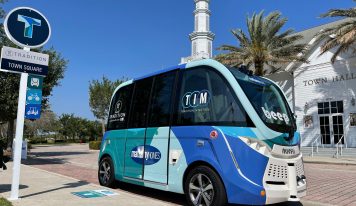Perhaps one of the most amazing under representations of human talent is inner-city workers from Silicon Valley and tech jobs in general.
Have you walked the streets of San Francisco lately for example? Could there be any greater contrast between groups of people?
It is not the point of this piece to place blame for why we are in this situation but having gone to engineering school at the University of Connecticut – albeit many years ago, we had almost zero inner city representation in our classes.
Diversity, equity and inclusion are loaded terms because to some people, it means fairness and to others, it means not choosing the best person for the job.
One way of looking at this situation is, just let the market take care of itself – market-based economies are best. And they are. There is no central planner in a government that has been successful in our opinion because central planning cannot respond to the competitive market dynamism needed for markets to function properly.
Moreover, when politics get involved – slogans replace logic. $15 “living” minimum wage? It sounds great until you realize the inflation caused by such a move actually reduces the disposable income of the lowest wage earners. What’s more, it accelerates job loss to Asia and machines.
Slogans without critical thinking can do more damage than WMDs.
To be honest, we didn’t want to write this piece because it is difficult to address almost any issue these days without being demonized, cancelled, etc. So why bother?
The reason we are putting ourselves out there is because we have been running a Diversity, Equity and Inclusion Award for a few years now.
We feel more companies want to help but it is very tough to hire inner-city engineers if kids in inner cities graduate from schools where they are often illiterate.
According to Bill Lucia, president and chief executive officer of EdVoice, Nearly half of California students can’t read at grade level. Moreover, students who struggle with reading are four times more likely to drop out of high school. And the correlation between illiteracy and incarceration is strong. A 2014 study on adult literacy published by the U.S. Department of Education found that one-third of incarcerated adults in 98 prisons struggled to read basic text.
And English is often easier than math. You can’t do math problems, if you can’t read them.
This is why when considering companies applying for our Diversity, Equity and Inclusion Award, we factor in what companies are doing to help the next generation become candidates for great and well-paying jobs in tech.
More importantly – we seem to have an amazing opportunity to use the tools that have made tech so addictive to now, educate people.

It is understandable that these kids can’t even imagine they could be the next Elon Musk if they haven’t seen any of their peers advance.
But yet, some kids do make it out of these terrible predicaments. Perhaps it is strong parenting or something else. We need to find these sparks in kids and add the kindling needed so they can flourish.
These kids can supercharge our economy – if we can only get to them.
We have been fortunate enough to work with lots of people in tech who have come from India, Asia, Iran and eastern Europe, where the importance of education is drilled into kids from a very young age. They often have many successful peers who set an example for them.
Having gone to a public high school in the US – we can tell you, the (peer) pressure is often to not study or worry about your future. We are sure this is part of the reason the latest results of an international exam given to teenagers ranked the USA ninth in reading and 31st in math literacy out of 79 countries and economies.
We hear of two Americas – boy is this a good example. The immigrants who come here with a culture of education and their kids are going to top universities and the inner city and kids in many other failing US schools aren’t even hirable.
Getting back to our award – let’s be honest… The people running the schools aren’t going to turn this around in the short term or ever.
So it is up to companies and people who have a vested interest in the next generation.
We look at these kids as the equivalent of oil from fracking… They are tougher to get to and we may need tech to reach them but when we do, there is untold economic value to be extracted.
In the past when evaluating award applications, we gave a lot of credit to companies who focused on inner city problems – getting kids to become proficient in reading and STEM.
We are extending this opportunity. We hope – we really do, that this piece has inspired you. If so, in our extensive application evaluation, we will consider your future pledge to help solve this problem of failing US schools and getting kids into STEM.
Market based economies always work best for the most people – we will debate this to the end and feel we are in the right. But this doesn’t preclude more companies from giving back to the best country in the world and helping the kids who through no fault of their own, do not even realize they can participate in the awesome STEM fields which can be so intellectually and financially rewarding.
One last comment – it is a paid award because it takes significant resources to process the voluminous applications we receive.
Aside from his role as CEO of TMC, Rich Tehrani is CEO of RT Advisors and a Registered Representative with and offering securities through Four Points Capital Partners LLC (Four Points) (Member FINRA/SIPC). RT Advisors is not owned by Four Points.
The above information was strictly a technical/business news article/review regarding the company(ies) mentioned. The information contained should not be considered and is not a recommendation to invest in or sell short the securities of the underlying company(ies).






